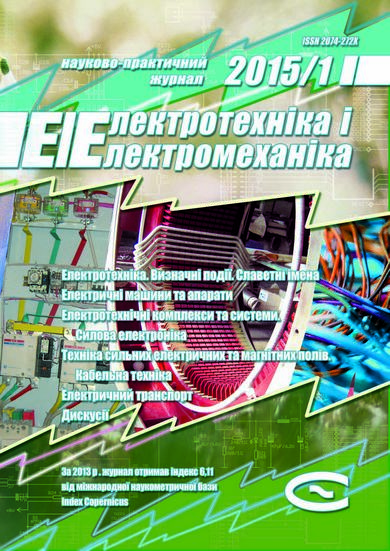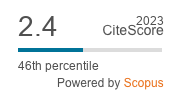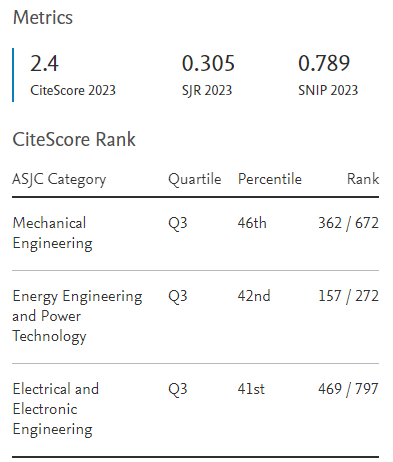INCREASE OF ENERGY EFFICIENCY OF TESTING OF TRACTION ELECTRIC MACHINES OF DIRECT AND PULSATING CURRENT
DOI:
https://doi.org/10.20998/2074-272X.2015.1.02Keywords:
electric traction machine, test for heat, energy efficiency, load current, electric energy consumptionAbstract
The results of the analysis of the effect of the load current of traction electric machines when tested for heating on the total electricity consumption for the test are presented. It is shown that increase of load current at the heating test permits to significantly reduce the consumption of electrical energy, and reduce the testing time without reducing its quality.References
GOST 2582-81. Mashiny elektricheskie vrashchaiushchiesia tiagovye. Obshchie tekhnicheskie usloviia [State Standard 2582-81. Rotating traction electrical machines. General specifications]. Moscow, Publishing House of Standards, 1981. 34 p. (Rus).
Pravyla remontu elektrychnykh mashyn elektrovoziv i elektropoizdiv. TsT-0204 [Repair rules of electrical machines for locomotives and trains. TsT-0204]. Kyiv, SАМ Publishing House, 2012. 286 p. (Ukr).
Afanasov А.М. Energy efficiency of coils heating of traction dynamoelectric machines during acceptance testing. Skhidno-Yevropeiskyi zhurnal peredovykh tekhnolohii – Eastern-European Journal of Enterprise Technologies, 2012, vol.5, no.8(59), pp. 6-9. (Rus).
Zakharchenko D.D., Rotanov D.D. Tiagovye elektricheskie mashiny [Traction electrical machines]. Moscow, Transport Publ., 1991. 343 p. (Rus).
Downloads
Published
How to Cite
Issue
Section
License
Copyright (c) 2015 A. M. Afanasov

This work is licensed under a Creative Commons Attribution-NonCommercial 4.0 International License.
Authors who publish with this journal agree to the following terms:
1. Authors retain copyright and grant the journal right of first publication with the work simultaneously licensed under a Creative Commons Attribution License that allows others to share the work with an acknowledgement of the work's authorship and initial publication in this journal.
2. Authors are able to enter into separate, additional contractual arrangements for the non-exclusive distribution of the journal's published version of the work (e.g., post it to an institutional repository or publish it in a book), with an acknowledgement of its initial publication in this journal.
3. Authors are permitted and encouraged to post their work online (e.g., in institutional repositories or on their website) prior to and during the submission process, as it can lead to productive exchanges, as well as earlier and greater citation of published work.





